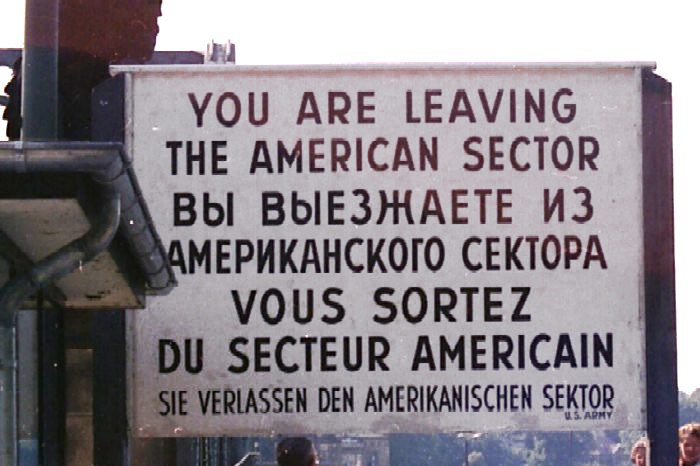
(Wikimedia CC)
“Well, that’s the problem, isn’t it? They haven’t had a war here for such a long time. Without a good war, where do you get your moral standards from? Everything goes to pot in peacetime. People eat what they like. You see them wandering about with cheese on their bread and then a great smear of bacon fat on top! How many men are there in that town down the road? How many horses? Nobody knows. They’ve never even been counted. I’ve been in places where they haven’t had a war for seventy years. People can’t even remember their own names. They can’t tell each other apart. It’s only when war comes you get proper lists. Everything numbered and with a label round its neck. It’s obvious. No war. No order.”
Bertolt Brecht (d. 1956)
The lines above are spoken by a sergeant at the very beginning of Bertolt Brecht’s 1939 play Mother Courage and Her Children (Mutter Courage und Ihre Kinder) about the Thirty Years’ War in seventeenth-century Europe.
They reminded me of the thesis of my longtime friend Bruce D. Porter’s 1994 book Warfare and the Rise of the State. Here’s how Publisher’s Weekly summarized that thesis:
“Porter, a political scientist at Brigham Young University, demonstrates that wars have been catalysts for increasing the size and power of Western governments since the Renaissance. The state’s monopoly of effective violence has diminished not only individual rights and liberties, but also the ability of local communities and private associates to challenge the centralization of authority. Porter’s originality lies in his thesis that war, breaking down barriers of class, gender, ethnicity, and ideology, also contributes to meritocracy, mobility, and, above all, democratization. Porter also posits the emergence of the ‘Scientific Warfare State,’ a political system in which advanced technology would render obsolete mass participation in war. This provocative study merits wide circulation and serious discussion.”
Dr. Porter was called to the Seventy in 1995 and currently resides in Moscow, where he presides over the Europe East Area of the Church.
My wife and I attended a performance of Mother Courage last night at BYU. Being able to attend such performances is one of the many blessings of living in a university town. Brecht isn’t the kind of author whose works are commonly staged in community playhouses. (Candidly, he was a bit of a slime ball, a life-long Marxist and a vocal defender of Stalinism.)
The above passage from the play also had me thinking about how much the centralization of power specifically in Washington has been furthered by wars.
Prior to the American Civil War, for instance, people typically used grammatically proper plural verbs with the United States (e.g., “The United States have determined to recognize the new government of Croatia”). In the wake of the Civil War, though, the singular verb came to the fore (“The United States has no interests in North Korea”) And whereas, in the Civil War, a man might serve in the Third Massachusetts Infantry or the Fourth Connecticut Artillery Regiment, soldiers serve today simply in the national army.
And, of course, power accrued in vast quantities to Washington during Roosevelt’s New Deal and, specifically, during World War Two. We organized a draft, instituted price controls and rationing, established national direction of crucial industries in order to further the war effort, and so forth. And by no means has all of that power been restored to the states or the people.












